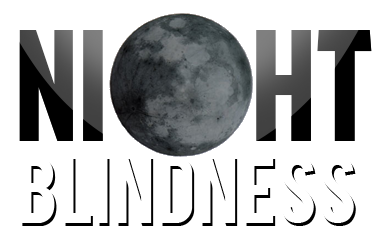The term night blindness may paint a picture of an individual’s inability to see at night. This is incorrect. Night blindness is technically referred to as nyctalopia, and is regarded as a visual impairment. People who battle this impairment experience poor vision in dimly lit rooms or at night. In this article, we’ll tackle the causes of night blindness, different night blindness treatments as well as other aspects associated with poor night vision to help you cope with it better.

What Causes Night Blindness?
There are a number of reasons as to why an individual could possibly experience night blindness, these are expounded on below.
1. Cataracts
Cataracts are basically described as debris that builds up on the lens of the eye. This buildup is attributed to the turnover of cells over the entire lifetime of an eye. Cataracts are painless, but they are progressive. It goes without saying that such a buildup will eventually impair vision, and one manifestation of this is poor night vision.
2. Vitamin A Deficiency
Vitamin A is the life blood of the retina. It is found in carrots and green vegetables, and in its absence, the retina becomes unhealthy. In developed countries, vitamin A deficiency is attributed to the inability of the body to absorb vitamin A from the gastro intestinal tract due to diseases such as celiac disease, cystic fibrosis, etc.
3. Zinc Deficiency
Zinc combines with vitamin A in the eye to ensure that the retina remains healthy. One of the richest sources of zinc is bananas. When one doesn’t include zinc in their diet, then they are courting poor night vision, or as called night blindness.
4. Retinitis Pigmentosa
This is a rare genetic disorder that normally afflicts young people who are below 30 years. It is marked by a progressive loss of sight although those it afflicts retain some degree of sight. The first symptom that an individual could be battling this condition is worsening night vision.
5. Diabetes
This is a prime cause of poor night vision because of the increased levels of sugar in the blood stream. This is toxic to the blood vessels and nerves in the eye. The major casualty of this buildup in the eye is the retina. One indication that the retina could be taking a beating from the body battling diabetes is poor night vision and the long duration it takes the eye to readjust to changes in light after coming outdoors from bright light.
How Is Night Blindness Diagnosed?
To diagnose poor night vision, your eye care professional will subject you to a variety of night blindness tests, some of these are:
- A retinal exam that basically assesses any damage to the structure of the back of the eye - vitreous, retina and choroid.
- A slit lamp examination that examines the structures in the front of the eye - conjunctiva, cornea, iris, lens and sclera.
- An electroretinogram (ERG), which measures the electrical responses of the eye cells when exposed to light. The electrical responses will highlight any abnormal function of the retina.
Treating Night Blindness
Once poor night vision has been identified, the experts will zero in on possible causes and tackle the problem from there. Here are the ways the experts go about night blindness treatment:
1. Treating Cataracts
Unfortunately, there is only one possible night blindness treatment with a case of cataracts, a surgery. When cataracts are the leading cause of poor vision, then a date with the surgical blade is inevitable. Fortunately, this surgery does not bear high risk, and when done, perfect vision is regained.
2. Treating Vitamin A Deficiency
There are two ways a deficiency in Vitamin A is dealt with: increase the intake in one’s diet, or in the event that one is dealing with a gastro intestinal issue that inhibits its absorption, then perhaps other angles can be approached. Eating foods that are fortified with the vitamin or using supplements or foods that combine with vitamin A, such as zinc, both of which ensure that the integrity of the retina is maintained.
3. Treating Genetic Defect Caused Vitamin A
Retinitis pigmentosa is the genetic condition that is responsible for poor night vision. This condition is marked by a degeneration of the rode photoreceptors. Unfortunately, there is no solid treatment plan for this condition. The progression of the condition can, however, be delayed by using supplements such as vitamin A, Lutein and DHA.
Preventing Injury from Night Blindness
 Now you have learned the causes and how to treat night blindness, the next question is, how can one prevent injury from night blindness?
Now you have learned the causes and how to treat night blindness, the next question is, how can one prevent injury from night blindness?
The most dangerous activity for any individual who is battling night blindness to be involved in is driving at night. Under normal circumstances, this is an activity that should be avoided at all costs. In the rare instance that you have to drive in the dark, then ensure that you are driving in a well lit area and that you only get to cover short distances. In the same vein, ensure that your automobile is user friendly – the lighting system should be perfect and your windscreen should be thoroughly clean. Lastly, drive slowly if you must drive at night.